Lundy island has been on my bucket list for years, ever since I first saw it from the mainland as a teenager. This year, my 50th birthday provided me with the ideal opportunity to drag the family to an Xbox and Netflix free island. Just as the teens thought 2020 couldn’t get any worse!
Getting there
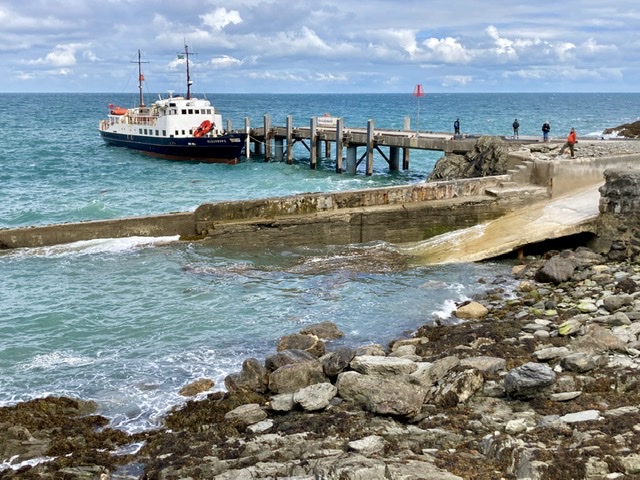
Part of Lundy’s attraction is its remoteness. Located in the Bristol Channel, 10 nautical miles off the coast of Devon, it has a resident population of 28 people. During summer the island can be reached by a two hour boat ride from Ilfracombe or Bideford on the MS Oldenburg. On a choppy day it’s not a good trip for those who get travel sick but at least the crew are well versed in handing out sick bags. I don’t travel well. The journey is erased from my mind.
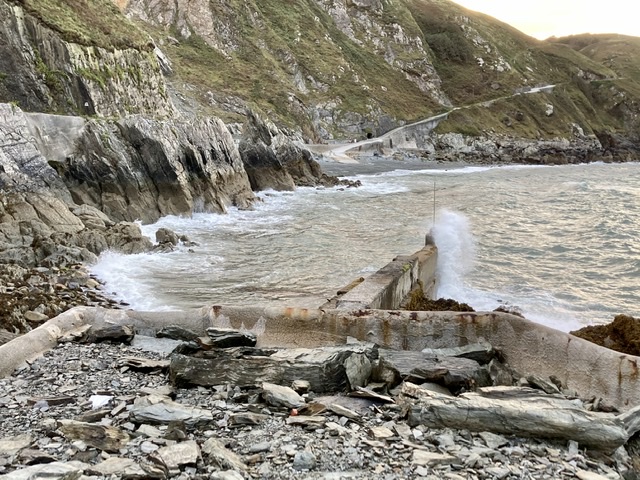
I remember our arrival though. Dramatic cliffs. A seal bobbing around the landing jetty. Sheets of torrential rain. A steep walk up to the village. And, half an hour later, seeing our neighbours wearing towel sarongs whilst waiting for their dry clothes to arrive via the Landrover luggage delivery. The same as us.
Accommodation
We’d booked a short stay in Bramble Villa West. I didn’t envy those arriving on a day trip to while away a few hours on a drenched island. The weather shapes your time on Lundy; be prepared for all eventualities. Wind and fog may delay, extend or cut short your trip so allow some flexibility around your stay.
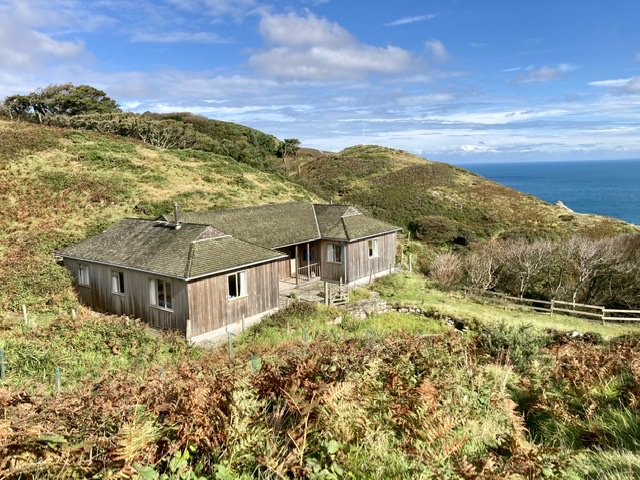
That said, if you want to stay on the island you’ll probably need to book at least a year in advance (except for camping). Despite there being more than 20 different places to stay it sells out fast!
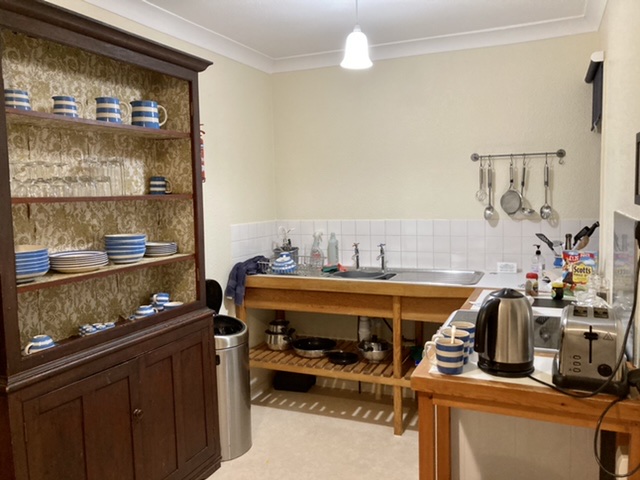
There’s a wide variety of accommodation available, all bookable through the Landmark Trust. All properties are simply equipped. No TV, Wi-Fi or dishwasher. But great locations, comfy beds and powerful showers. For the full experience I’d love to stay in Tibbetts; it’s the most remote cottage on the island with no electricity.
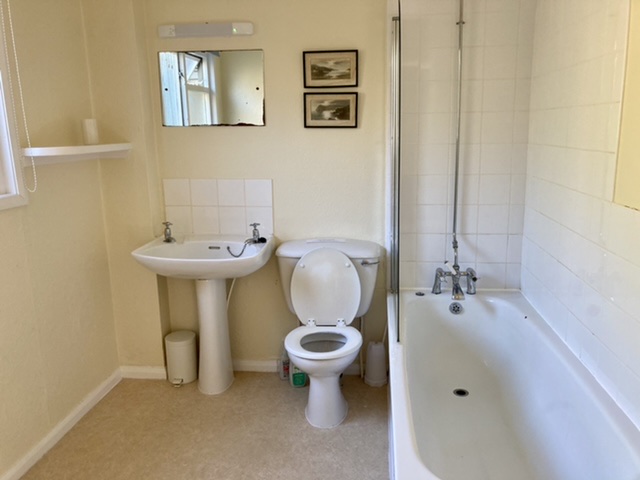
Whilst there was no TV, there were plenty of board games to work through in our cottage. We had a great time playing them each night. Even after the teens discovered that if they walked to the end of the track they could get a 4G signal (argh!).
Food and drink
There’s only one place to eat and drink out on Lundy, the Marisco Tavern. I’d heard great reviews but things were a little different in the midst of a pandemic. Quite rightly the islanders didn’t want to end up with the lurgy so visits to the pub were on an ‘eat your dinner, then leave’ basis. A restricted menu was in operation, with food and tables pre-booked. We ate out once but as there was only one veggie option available we catered for ourselves the rest of the time.
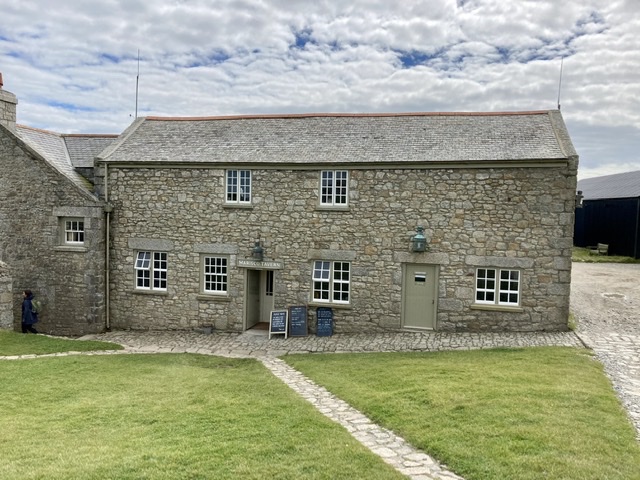
Fortunately the village shop was well-stocked albeit, as you’d expect, higher priced than the mainland. If you’re sufficiently organised you can also order in advance of your visit and shopping will be delivered to your accommodation.
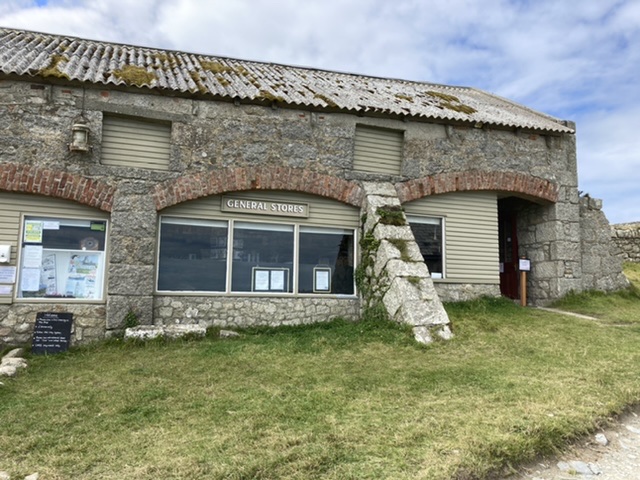
Exploring the island
Lundy is three miles long and around a half mile wide. You’d think it would be easy to see it all in a few days but time just disappears when you’re searching for letterboxes, bird-watching or seal spotting!

Most of the island is open access although it’s best to stick to the footpaths as much as possible, particularly near the cliffs. If you’ve got a full day spare it’s possible to walk the round island route but we never got much further than the halfway wall.
The buildings
Whilst visitors are usually here for the outdoor attractions Lundy’s long history of habitation has resulted in buildings of note too.

St Helen’s Church has no regular priest but is open to visitors and holds occasional services. It is also a popular location for bell ringers. Indeed, the only negative reviews I read about Lundy related to visitors whose holiday coincided with that of bell ringing groups!

There are three lighthouses on Lundy; two on the north and south extremities and one inland. This lighthouse, known as Old Light, was once the highest lighthouse in England. It’s no longer operational but is open to all who can manage the twirly stairs. It even has a couple of deckchairs up top to relax and enjoy the view from. A good lunch spot.

Lundy also has its own castle, initially built by Henry III in around 1250 to help reign in the troublesome Marisco family. Since then it has been occupied by pirates, deportees and shipwreck victims. Nearby is Benson’s Cave which was once used to store contraband; follow the rope guide down the slope to help you access it safely.
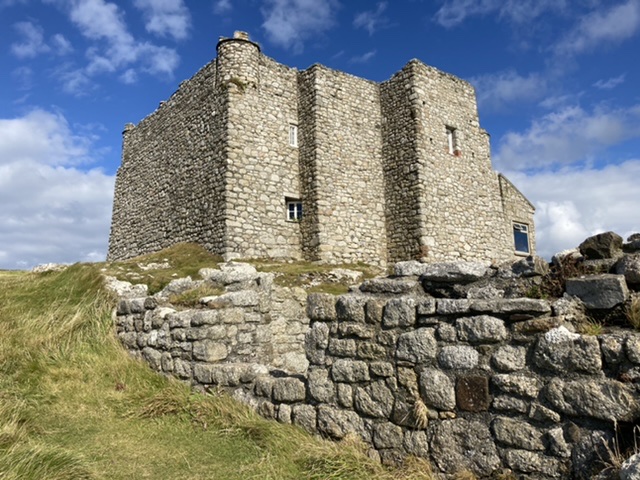
There are many other reminders of the previous inhabitants of Lundy. The graveyard, near Old Light, contains four early Christian memorial stones from around the 5th century. Along with gravestones of more recent island owners. And stunning views!

Letterboxing
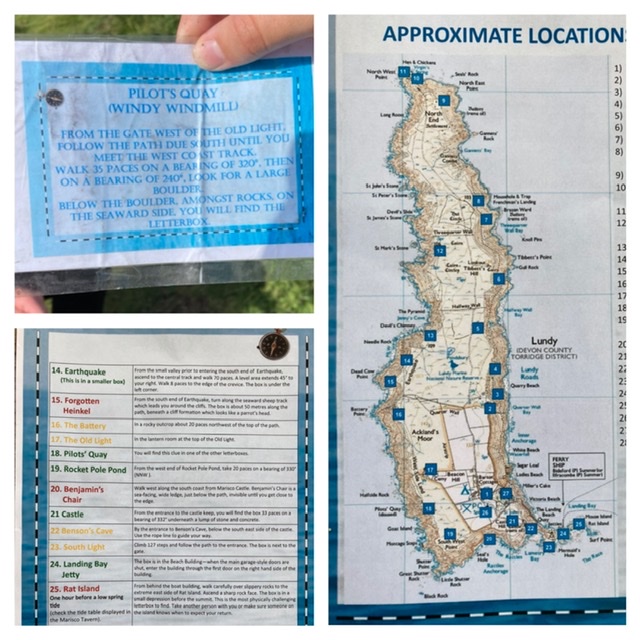
Lundy is known for its letterboxing, the original low-tech version of geocaching. It’s a great way to explore the island, and the reason I need to return one day. We bought a letterboxing pack from the shop which included all of the clues, a book to put your stamps in and an ink stamp.
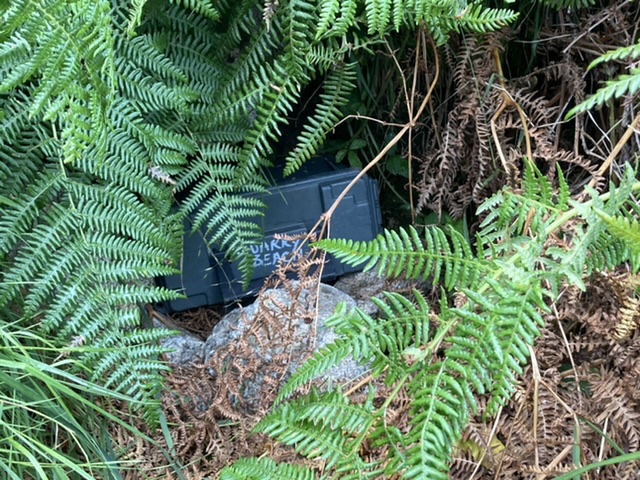
There are 27 letterboxes hidden across the island, mostly in the southern half. The clues to finding these are graded green, amber and red, based on how easy they are to access and find. Despite our best efforts some letterboxes eluded us, including the one in the ‘Earthquake’ (a fissure in the rocks supposedly created at the same time as the Lisbon earthquake).
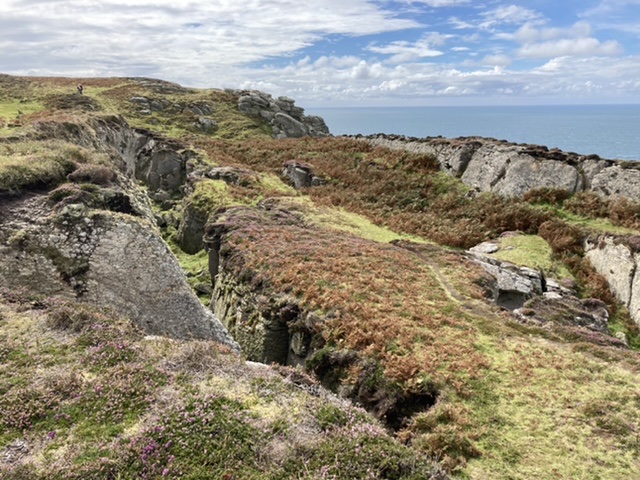
The trickiest letterbox is on Rat Island, near the landing jetty. It can only be reached via a scramble at low tide. We didn’t have time to attempt it. Plus I was too scared of getting marooned!
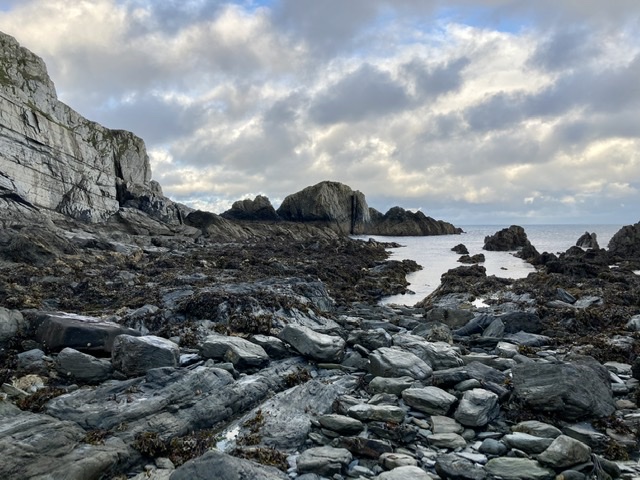
The wildlife
If you’re familiar with Norse, (aren’t we all) you’ll know that Lundy translates to puffin island. And, if you visit from April-July you’ll probably see puffins (although one of my other favourite islands, Skomer, is a better bet). However serious birders are more likely to visit during the spring and autumn migrations. I’m no expert and was more than happy with the variety of birds we saw.
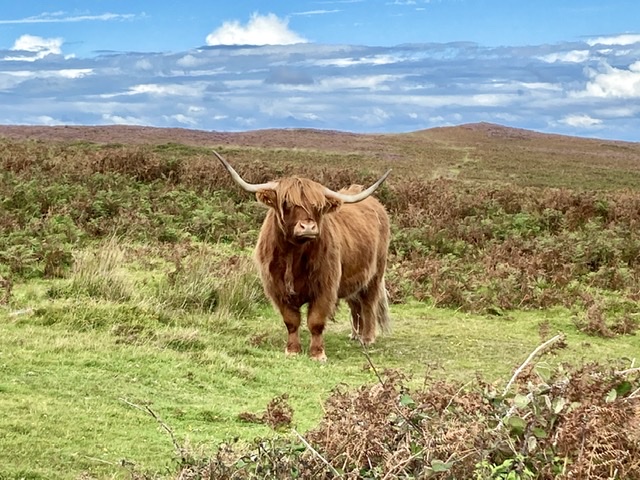
We also saw plenty of Atlantic grey seals around Rat Island, including a very young pup near the jetty which had likely succumbed to the unseasonably stormy weather the previous day. There were seals on the east coast too although good binoculars were required to view them.
Across the island there’s a mix of introduced and native wildlife. Lots of the houses have native shrews living in the kitchens. Our house didn’t, although I’m still undecided whether this was a good thing or not. Shrews aside, we saw plenty of introduced animals including Sika deer, Lundy ponies, feral goats and Highland cattle. And strangely, what appeared to be goldfish (?) in one of the ponds!
The verdict?
A brilliant short break, that lived up to my expectations. One of the best things about 2020. And yes, even the teens enjoyed it!
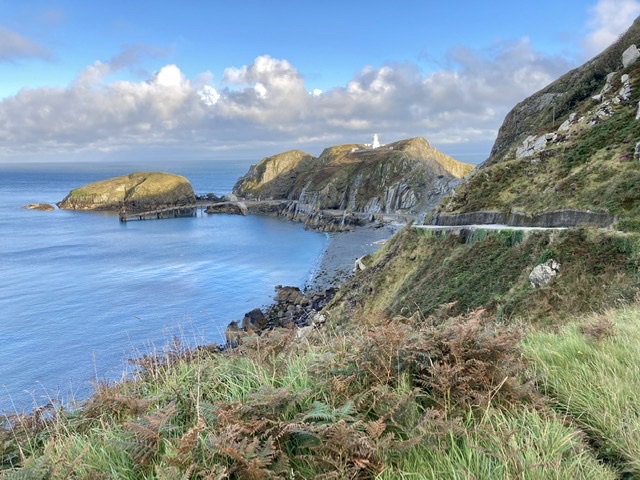
Lundy is on my bucket list too. Looks like such a fabulous place to spend a few days.